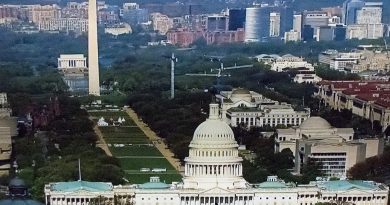Why Paris Attacks Mean More Than Other Recent Events
Isla Lamont
Staff Writer
The series of terrorist attacks perpetrated by ISIS in Paris on November 13 left 130 dead and over 300 wounded. At its peak, the entire world stood in solidarity with the pain and suffering which gripped France.
Yet within 24 hours, the global conversation turned to complaints about the lack of media coverage in other parts of the world when compared to the tragedy in Paris.
Also on Nov. 13, 19 people were killed in the Iraqi capital of Baghdad by ISIS suicide bombers. On Nov. 12, in a Shia neighborhood of Beirut, Lebanon, 43 people were killed in twin suicide bombings by ISIS members.
Over the past year, deadly attacks including the shooting of a Christian school in Kenya and a child suicide bomber in Cameroon lack reporting from Western media.
In perhaps my most unpopular opinion to date, I would assert that while being aware of the news-reporting biases in America is a needed mindset, the Paris attacks deserve dominant media coverage. What happened in Paris means more than what happened anywhere else in the world at this given time.
However, I think it is important to understand the previous sentence. It does not mean, “What happened in Paris is worse than Lebanon, or Nigeria, or Syria, or Iraq,” or, “Western lives mean more than Middle Eastern or African lives.” I would never insinuate that the life of someone from one country has less value than another’s. And I most certainly do not feel inclined to defend American media practices.
What it means is that compared to events in the rest of the world, the attacks on Paris were unprecedented and possess long-term consequences. It was a clear political statement, performed with different intents as to the scale of inflicted damage.
The first reason why the Parisian attacks are so monumental is because there has not been anything like these attacks in recent history.
In the entire 21st century, 163 French have died as the result of domestic terrorist attacks, including the Charlie Hebdo and November 13 attacks. Compare this number to the 288 people who died in terrorist attacks across the Middle East and North Africa in November 2015 alone.
Prior to 2015, the worst terrorist attack on France was a train bombing in 1961 which resulted in the deaths of less than one fifth of amount killed in the November 13 attacks.
It is not a pretty or easy thing to say, but the truth is that deadly violence is much more commonplace in countries such as Iraq and Lebanon than it is in the Western world.
Therefore, when a monumental and organized attack such as this one occurs, it deserves a large amount of attention.
The second reason why the November 13 attacks command so much media coverage is because of the global aftermath it has and will continue to cause. It is not an exaggeration to say that these events are the type that spark World Wars.
Following the attacks, France had an immediate military response, which harkens to its power as a European country, a member of the EU and NATO, and holder of secure ties with the United States, the world’s most powerful military force. All of these attributes play out in a cold-war revision era where Russia is once again becoming a dominating and conflicting player in the Middle East. This cannot also be said for Iraq or Lebanon.
Finally, the third and fourth reasons for the importance of these attacks are closely tied.
The events of Nov. 13 were deliberately premeditated to carry a maximum impact of fear. They were made with express purpose to terrorize the word, to make a statement of power, beyond simply killing innocent people. ISIS, a radically extremist, Muslim, and conservative organization, targeted a country led by its far left-wing leader, President Hollande, a symbol of the Western world as a whole.
Other attacks in other parts of the world certainly had similar intentions, but they were on a much smaller scale as far as the intended affected audience.
The Paris attacks were specifically designed as a statement to the entire world, and thus directly affect millions of people by exposing the harsh truth: no one is safe.


